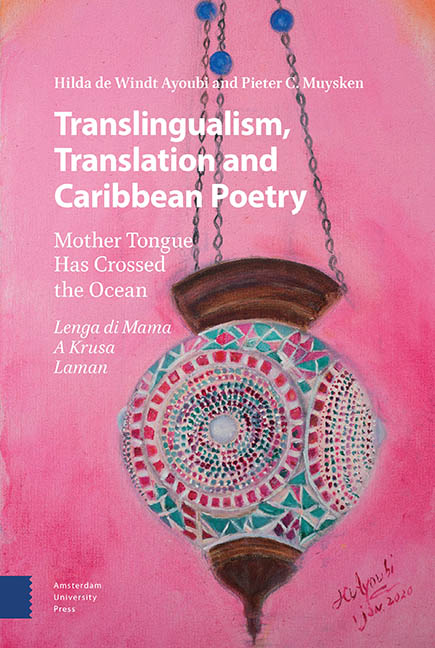Book contents
- Frontmatter
- Dedication
- Contents
- How to Navigate This Book: Kon Nabegá den e Buki akí
- Acknowledgements
- Preface
- Part 1 Introducing the Mother Tongue: Introdukshon di Lenga di Mama
- Part 2 The Poem “Lenga di Mama” and its Translations, Comments and Language Descriptions E Poema “Lenga di Mama” i su Tradukshonnan i Komentario i Deskripshon di e Idiomanan
- Part 3 The Poem “E ‘papiá’ di Papiamentu” and its Translations E Poema “E ‘papiá’ di Papiamentu” i su Tradukshonnan
- Part 4 The Poem “Papiamentu pa Semper” and its Translations E Poema “Papiamentu pa Semper” i su Tradukshonnan: The Translations and Editing of the Poem Hilda de Windt Ayoubi and Pieter Muysken (for Dutch)
- Part 5 The Poem “Riba Ala di Lenga di Mama” and its Translations E Poema “Riba Ala di Lenga di Mama” i su Tradukshonnan
- Part 6 Commentary: Komentario
- Note on the Authors: Informashon tokante e Outornan
- Index: Índise
Preface
Published online by Cambridge University Press: 15 September 2022
- Frontmatter
- Dedication
- Contents
- How to Navigate This Book: Kon Nabegá den e Buki akí
- Acknowledgements
- Preface
- Part 1 Introducing the Mother Tongue: Introdukshon di Lenga di Mama
- Part 2 The Poem “Lenga di Mama” and its Translations, Comments and Language Descriptions E Poema “Lenga di Mama” i su Tradukshonnan i Komentario i Deskripshon di e Idiomanan
- Part 3 The Poem “E ‘papiá’ di Papiamentu” and its Translations E Poema “E ‘papiá’ di Papiamentu” i su Tradukshonnan
- Part 4 The Poem “Papiamentu pa Semper” and its Translations E Poema “Papiamentu pa Semper” i su Tradukshonnan: The Translations and Editing of the Poem Hilda de Windt Ayoubi and Pieter Muysken (for Dutch)
- Part 5 The Poem “Riba Ala di Lenga di Mama” and its Translations E Poema “Riba Ala di Lenga di Mama” i su Tradukshonnan
- Part 6 Commentary: Komentario
- Note on the Authors: Informashon tokante e Outornan
- Index: Índise
Summary
On International Native Language Day, 2014, Hilda deWindt Ayoubi wrote a poem in Papiamento, “Lenga diMama” (Mother Tongue). A beautiful poem where thecontent speaks for itself.
I then tried to translate the poem into Dutch. It waspublished on the website of Stemmen van Africa,Voices from Africa (www.stemmenvanafrika. nl). Itsoon turned out that many more people thought it wasa beautiful poem, and in the course of time wereceived translations in more than fifty languages.The results from this prolific support is found inthis collection. It seems that time and time again,translators considered it worth the effort. The actof translation led to released emotions and newthinking. Hilda has supported this processenthusiastically during the years and deserves allthe praise for this publication.
The translators were not all professional translators,some had never thought they would ever translateanything, because very little was previously writtenin their own language. In this respect it seems alittle bit like Le PetitPrince (The LittlePrince) by Antoine de Saint-Exupery,which, with translations in more than 300 languagesis the most translated book in the world after theBible. The Dutch film maker Marjoleine Boonstrarecently made a beautiful documentary about this,Het wonder van Le PetitPrince (The Miracleof Le Petit Prince) (IDFA, 2018).
Before you lies a smaller miracle. You may encounterthe poem in your own language, but it also invitesyou to discover all kinds of different languages,even several that you did not think you couldunderstand. Translating, recognizing, understanding:all of these contribute to making us become morehuman.
- Type
- Chapter
- Information
- Translingualism, Translation and Caribbean PoetryMother Tongue Has Crossed the Ocean, pp. 27 - 32Publisher: Amsterdam University PressPrint publication year: 2022

